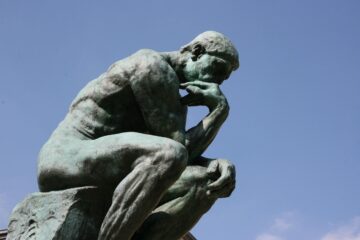I recall many trying days in America in my youth and developing years. Growing up, I saw the assassination of President John F. Kennedy in 1963. I was just 12 years old when I was ushered into the seriousness of life in ways I had not imagined. At 12, a young boy is learning how to play sports, win at mumblety-peg, and how to be “cool” around girls. National trauma was not among my expectations. Nonetheless, Kennedy’s murder set in motion much soul searching about our nation and how to handle a national crisis of that magnitude.
Soon the Vietnam War would erupt. Ironically, Kennedy would set that in motion. Under his successor, President Lyndon Johnson, the war blossomed into a huge mess. It soon turned into a noxious weed. What followed was domestic conflict over the war. The war had early support by the vast majority of Americans. But as casualties mounted, so too did the protests.
The side that supported the war did so out of what they believed was patriotic duty. The side that opposed it recoiled at the death of soldiers and civilians alike. As the death count rose, so did the protests. By 1968, it would chase Johnson from office. After a decade of war—weary of protest and national disunity—the US would abandon South Vietnam claiming, “peace with honor.” It was not so, any more than when President Joe Biden walked away from Afghanistan, unceremoniously surrendering it to a terrorist regime.
The Vietnam era would also witness the death of political icons Robert F. Kennedy and Dr. Martin Luther King, Jr., both of whom opposed the war. Their assassinations fueled more internal conflict, calling into question the very character of the nation. In 1974, President Richard M. Nixon, who ended the war, would resign in disgrace over the Watergate scandal. It was a trying time.
The protests of that era were largely focused on American domestic and foreign policy. People, while disagreeing vehemently, never found it necessary to suggest that America was a fundamentally evil nation. Indeed, both sides saw value in our founding, often invoking it to justify their ideological views. For most of us, America was good and worth preserving.
But in the current era of protest, it is different. Today there is abundant anger. And the people who are the angriest seethe with hatred for America and anyone who defends its founding. Now, the most unhappy among us call into question the very rationale of our founding. They hate it and want to turn the nation into something it was never envisioned to be, a socialist state that controls the smallest details of life including what you think, say, and do. That’s not freedom. It’s totalitarianism.
They despise what many of us learned was the root of American greatness, individual rights. Many protesters—predominantly on the left—see the Constitution, the rule of law, the right to own private property, and the idea of a common American identity as a threat. They seek to replace it with anarchy, collectivism, and a globalism that diminishing and undercuts our founding principles. Doing so will destroy freedom. They do not grasp their own folly.
It gets worse. Now the conflicts in the political milieu we are suffering are enlivened by strident rhetoric over race, sexual identity, and anti-Americanism. A particularly troubling element is hatred of Jews. Antisemitism is on the rise and very much represented in the loathing we see from the political left.
In truth, the far left is now populated with poorly educated bigots. They threaten all we have that is good and worthy of preservation, including our Constitution. They have no regard for the truth, preferring abhorrent purveyors of terror over innocent victims. The very fact that we have students on our college campuses supporting terrorists who massacred innocent Israelis on 7 October 2023 is a testament to how low we have sunk in a swamp of moral decay. Universities are now laboratories for hatred and intolerance. No longer are we educating our youth but rather radicalizing them.
Education today—both elementary and higher—mocks the idea of enlightenment. Indeed, a darkness has descended over the education establishment that is producing young Americans oozing with disdain for anyone with whom they disagree. Civil debate has been replaced by a reckless violence far exceeding the antiwar protests during the Vietnam saga. This must stop.
It is time for institutions of higher education to adopt a higher standard. That should begin with an unqualified renunciation of antisemitism. But more is needed, including a genuine effort to ensure diversity of thought in universities. Despite the vast difference in viewpoints around the Vietnam War, at least its participants on both sides were committed to principles. Today’s protesters seem committed to empty-headed bigotry and hatred.



0 Comments